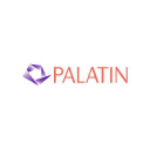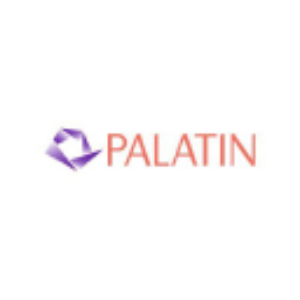Welcome to our dedicated page for Palatin Tech news (Ticker: PTN), a resource for investors and traders seeking the latest updates and insights on Palatin Tech stock.
Palatin Technologies, Inc. (PTN) is a biopharmaceutical innovator developing receptor-specific therapies for conditions with high unmet medical needs, including obesity, inflammatory diseases, and ocular disorders. This page provides investors and industry professionals with timely updates on the company’s clinical progress, regulatory milestones, and strategic initiatives.
Access comprehensive coverage of Palatin’s press releases and news articles, including updates on melanocortin receptor-targeted drug development, clinical trial results, and partnership announcements. Our curated repository ensures you stay informed about key developments in the company’s pipeline, such as PL8177 for ulcerative colitis and MC4R agonist programs for metabolic disorders.
Content spans regulatory filings, research collaborations, patent updates, and analysis of scientific presentations. Bookmark this page for streamlined access to verified information about Palatin’s advancements in peptide therapeutics and receptor modulation strategies. Check back regularly for objective reporting on how the company addresses complex medical challenges through precision drug development.
Palatin Technologies (PTN) reported its fiscal Q1 2022 results, highlighting significant advances in its melanocortin agonist programs. The company expects to initiate a Phase 3 study for PL9643 in December 2021 and a Phase 2 trial for PL8177 in early 2022. Vyleesi's net revenue surged 98% quarter-over-quarter, reaching $159,482, despite a 13% drop in total prescriptions. Total operating expenses rose to $7.4 million, up from $3.7 million in the prior year. Palatin's cash position stands at $53.4 million, sufficient to cover anticipated expenses through 2022.
Palatin Technologies (NYSE American: PTN) will announce its Q1 FY 2022 operating results on November 15, 2021, before U.S. market opening. A conference call will follow at 9:30 a.m. ET, including a review of results and updates on development programs. The results press release will be issued at 7:30 a.m. ET, with a replay available until November 22, 2021. Interested parties can access the audio webcast through Palatin's website.
Palatin Technologies, Inc. (PTN) reported its fourth quarter and fiscal year results, highlighting a successful Phase 2 trial for PL9643, aimed at treating dry eye disease. The company has a cash position of $60.1 million, expected to support operations through 2022. PL9643’s
Palatin Technologies, Inc. (PTN) announced promising results on melanocortin agonists PL8331 and PL9654 at the 2021 ASRS Annual Meeting. The data showcases protective effects against retinal inflammation in mouse models, highlighting potential treatments for diabetic retinopathy. CEO Carl Spana emphasized ongoing positive results in inflammatory disease models. The presentation, scheduled for October 9, 2021, will feature these findings, reinforcing the company's focus on the melanocortin system's therapeutic applications.
Palatin Technologies, Inc. (PTN) will announce its Q4 and fiscal year end 2021 operating results on September 29, 2021, prior to the market opening. A conference call will follow at 11:00 a.m. ET, providing a review of the operating results and updates on ongoing programs. Investors can access the audio webcast through Palatin's website. This announcement is pivotal as it provides insight into the company's financial performance and strategic direction for potential investors.
Palatin Technologies (NYSE American: PTN) announced its participation at the TIDES USA hybrid conference in Boston from September 20-23, 2021. The company will feature a presentation and two poster presentations focused on its melanocortin peptide research, targeting inflammation. CEO Carl Spana will discuss the development of melanocortin-based therapeutics, while John Dodd will present data on colon inflammation. The presentations aim to showcase potential treatments in inflammatory conditions.
Palatin Technologies, a biopharmaceutical company focused on developing first-in-class medicines, announced that Dr. Carl Spana, President and CEO, will participate in the H.C. Wainwright 23rd Annual Global Investment Virtual Conference from September 13-15, 2021. The company specializes in medications that target melanocortin and natriuretic peptide receptor systems, aiming to address significant unmet medical needs. Palatin's strategy includes developing products and forming marketing collaborations to maximize their commercial potential.
Palatin Technologies (PTN) announced a presentation by CEO Carl Spana at the Eyecelerator@ASCRS Conference in Las Vegas, discussing the role of melanocortins in reducing inflammation and presenting data from a Phase 2 study of PL9643 for dry eye disease (DED). The company is set to initiate a Phase 3 clinical trial in late 2021, with a potential NDA submission in late 2023. Notably, PL9643 demonstrated statistically significant improvements in patient symptomatology and showed excellent ocular tolerability in the Phase 2 study.
Palatin Technologies announced the adjournment of its 2021 Annual Meeting of Stockholders, initially held on June 8 and adjourned to July 8, now rescheduled for August 6. This adjournment is to solicit more proxies for an increase in authorized common stock from 300 million to 400 million shares. Approximately 71% of shares voted supported the proposal, but this was insufficient for approval. The Board believes this increase is vital for capital access to advance development programs and explore strategic opportunities. Stockholders are encouraged to vote before the new meeting date.


